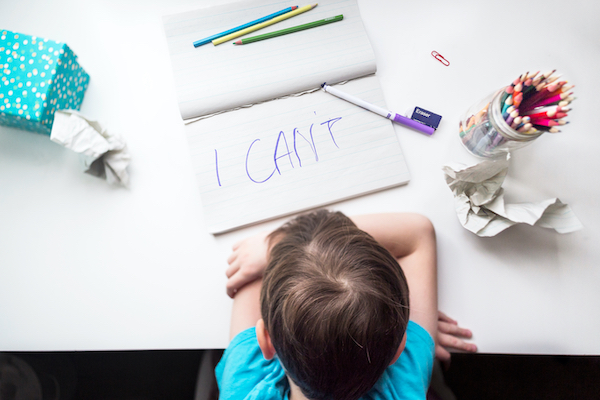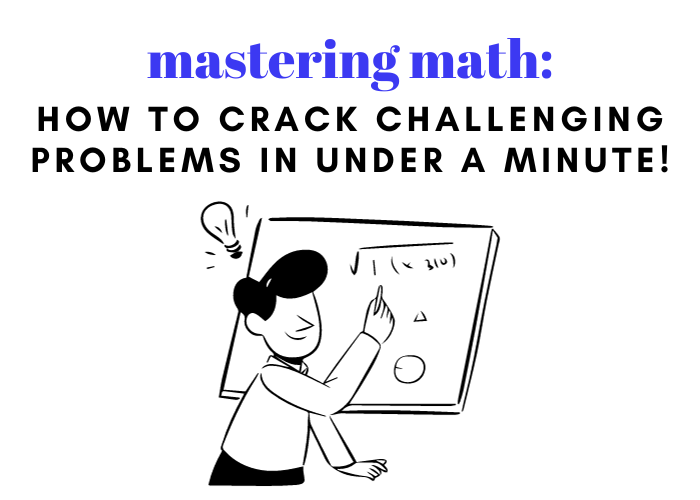

Last Updated on June 30, 2023
Simple answer? Reading every day—even just for fifteen minutes—can help your child creatively, academically, and even spark a new love of something that could potentially lead to a rewarding career.
From The Healthy, we learn that “The most basic impact occurs in the area associated with language reception—the left temporal cortex. Processing written material from the letters, to the words, to the sentences, to the stories themselves snaps the neurons to attention as they start the work of transmitting all that information into understanding. This happens when we process spoken language, too, but the very nature of reading encourages the brain to work harder and better.”
Reading daily with children helps build up their brain’s neurological pathways, helps them understand new words and their meanings, helps build their understanding of the world and how we communicate, and teaches them storytelling and creativity. Imagine experiencing books again for the first time, and remember how exciting it was for you to discover new worlds and adventures. Your kids will thank you for inspiring a love of reading in them!

Studies show that reading for pleasure makes a big difference in your child’s educational performance. Children who read for enjoyment every day not only perform better on reading tests than those who don’t, but also develop a broader vocabulary, increased general knowledge, and a better understanding of other cultures and genres. If you offer them books ranging in topics from history, to science fiction, to fantasy, and more, you might just help them find their new passion in their studies too. Children who love to read love to learn.
In fact, even more than a child’s social or economic background, reading for pleasure helps set them up for success and helps determine their academic performance. You can set a great example by reading books for them before they can read on their own, then setting aside specific time each day to read together once they can. Whether that’s them reading aloud to you, vice versa, or simply reading next to each other, the time allotted will bring you closer together and set a standard for your kids.
We know it seems obvious that your children should learn to read. We all went through the phase as children where our parents put a huge emphasis on reading and how it would be life-changing for us. However, did they ever actually tell you why it would be life-changing?
The American Pediatrics Association reports that reading when young – even infants being read to by their parents – increases academic success down the road. From Renaissance.com we learn that “The [authors] suggested that reading practice can play an “important role” in closing achievement gaps between different socioeconomic groups. Frequent high-quality reading practice may help children compensate for—and even overcome—the challenges of being socially or economically disadvantaged, while a lack of reading practice may erase or potentially reverse the advantages of a more privileged background. In short, reading practice matters for kids from all walks of life.”
There are so many statistics on the benefits of reading, but here are a few of our favorites:
So while you’ve always known it was important to read, and likely still feel some guilt about the amount of reading you do or don’t do, now you have specific facts on how reading can change your child’s life. So, is it worthwhile to get them interested from a young age? We think so.

It’s not just your kids that should be reading daily. If you’re here to learn about creating healthy habits within your children, don’t let that stop you from doing the same for yourself. You can do the most for them by setting a good example. Plus, there are so many amazing books coming out every single day, you will thank yourself for getting back into reading!
What exactly do we get from reading books? Is it just a matter of pleasure, or are there benefits beyond enjoyment? The scientific answer is a resounding “yes.” Step Up For Mental Health says, “Studies have shown that reading as little as 6 minutes per day can improve your quality of sleep, reduce stress, and sharpen mental acuity. Reading strengthens the neural circuits and pathways of our brain while lowering heart rate and blood pressure.”
According to Healthline.com, reading:
So, why aren’t more people reading?
In addition to all of those positive statistics on reading from a young age, there are quite a few negative statistics we could talk about. Such as how 65% of America’s fourth graders do not read at a proficient level, and 1 in 4 children in America grow up without learning how to read. While this is certainly disheartening to learn, you can actively fight against this statistic by teaching your kids to read when young and continuing your own reading habits throughout your life.
Getting a solid foundation in reading and learning is the key difference in both academic performance, and likelihood for success as an adult. As sad as it is, economic background and poverty lines have created a huge gap in test scores and reading accuity.
Young children whose parents read them five books a day enter kindergarten having heard about 1.4 million more words than kids who were never read to, a new study found. This ‘million word gap’ could be one key in explaining differences in vocabulary and reading development.
More than just reading daily and helping your kids understand the importance of reading, a huge difference you can make in their development is having plenty of kid-friendly books on hand. Your local library offers thousands of options for your kids to choose from, and letting them own their own library card and pick out their books is a good option.
However, the biggest difference you can make is having kid-friendly books in your house. “Having books in the home is twice as important as the father’s education level,” research in Social Stratification and Mobility states. We know brand new children’s books can be expensive, so instead you can thrift them! Check out your nearby thrift stores and head straight to the book section where you might just find some from your own childhood that you’ll be excited to share with your kids.
Here are some stellar children’s books we recommend:
The above books range from fun, exciting adventures to history and the people who have gotten us to where we are now. Understanding historical figures and the potential children have to make a difference is just one way you can get your kids motivated in their young lives. We highly recommend reading your children stories that feature both strong female and strong male leads!

If your kids miss out on this crucial reading from an early age, besides lacking that critical brain development we’ve been talking about, your kids will also miss out on some beneficial academic boosters.
FerstReaders.org shares that “The single most significant factor influencing a child’s early educational success is an introduction to books and being read to at home prior to beginning school.” and, “By the age of 2, children who are read to regularly display greater language comprehension, larger vocabularies, and higher cognitive skills than their peers.”
Not to be a downer here, but we’ve learned that children who lack reading skills have a higher likelihood of dropping out of high school, and a higher potential for juvenile crime. These children also perform lower on tests, have a harder time focusing in class, and have a less-likely chance of attending higher education. We get it, the best way to set your kids up for success is to inspire a love of reading in them, so don’t hesitate to read them as many books as you have the patience for.
It is never too late to get your kids on the reading train. If you feel that they’ve missed building the foundation of reading necessary for higher academic achievement, don’t let that stop you from getting them interested in reading now. Rather than watching a movie or TV show tonight, tell them you’ll be reading with them or to them. Rather than letting them waste their time on a tablet or smartphone for hours, tell them about your favorite books as a child and offer to go hunting for them together at a bookstore or thrift store.
You’ve got this!
Now it’s time to start talking habits. After all, that’s why you’re here, right? Developing a reading habit in your children obviously has plenty of benefits, so now it’s time to figure out just how to get them to keep it up.
As we mentioned earlier, even just ten minutes of reading every single day is beneficial for you and your kids. However, we know you can do better than that! Start this habit of reading together by putting it in your calendar. Make sure you won’t have recurring time conflicts, and choose a time when you know your kids will be a little more calm; a little more ready to focus. Dedicate at least ten minutes at first, and increase the time weekly.
An unfortunate fact, but one that’s true and only getting worse. With the prevalence of technologies like tablets and smartphones, it’s difficult to get our kids to focus on something as boring as reading. So, what can you do about it?
Well, in addition to getting your kids to read more, there are a variety of things you can do to help alleviate some of that screen time. This article from MamaNatural goes through a list of your options. Our favorite solution to the problem though is (we know, you didn’t see this coming), to lead by example.
Your kids look to you for the solutions to all their problems. If you’ve already made reading a standard in your home, they’ll follow your lead and make reading a priority.

As we talk about in our habits blog, you can form a habit after consistently doing the action anywhere between 18 and 254 days. That’s a hugely broad window, but you’ll know when it’s a habit because you will feel the trigger without thinking.
We think the best time to dedicate to reading is just before bed. This way, you’ll feel triggered to read just by getting ready for bed, and your kids will too. After you’ve brushed teeth and bathed, get your kids tucked up in their bed and start reading. Eventually, you may find that your kids will be so engrossed in a book that they’ll jump into bed earlier, just so they can keep reading.
Try to maintain this habit even when time doesn’t allow for it, and even on vacation. If you weren’t able to read for ten minutes yesterday, dedicate twenty minutes to reading today. Let kids bring their books with them wherever they go, understanding that they might get a little roughed-up in the process. Books are meant to be read, so don’t worry about keeping the books nice so much as keeping the books in their hands.
Another great way to keep both of you interested in reading is to talk about your books. Talk about the characters, the pictures, the writing. Read a variety of books like science fiction, poetry, fantasy, non-fiction, and even math books!
There’s no doubt that reading is one of the best habits we can curate within our children. Over the course of the next few months, we’ll be talking about all kinds of healthy habits that you can help develop within your kids, and we’ll be figuring out the best ways to do so.
So join us on this pathway to raising healthy, well-rounded adults, and if you find your young students needing any math help along the way, we’re here to solve that problem for you.
Happy reading, and happy habit-forming!


